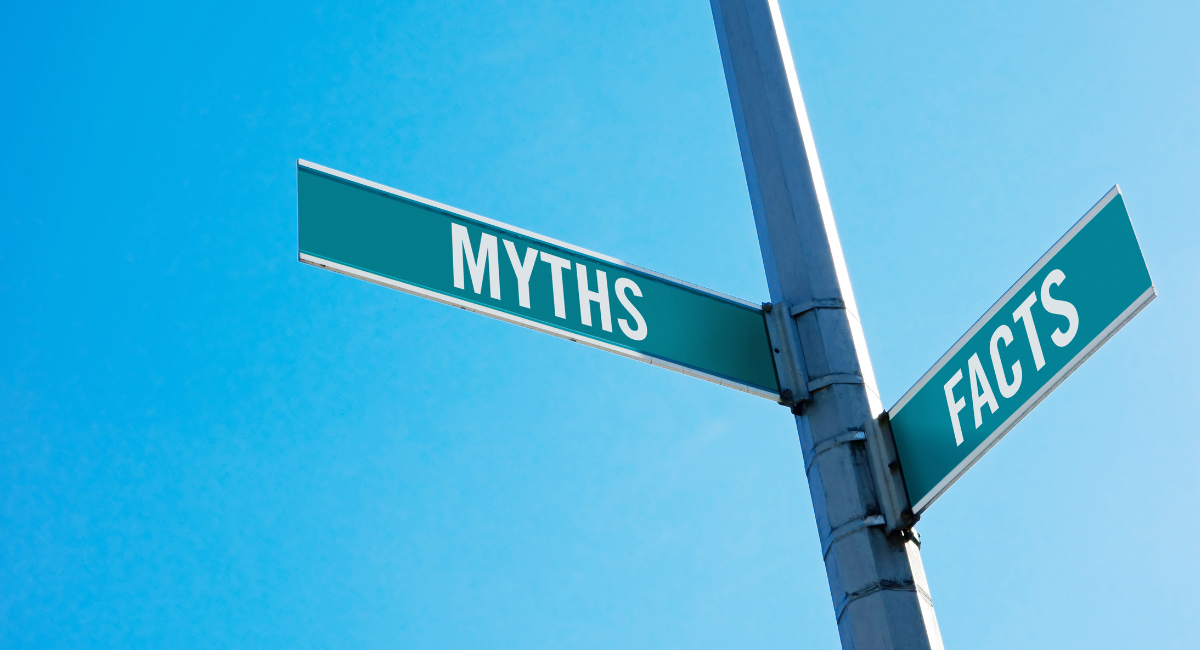10 Common Editing Myths Debunked

Like every area of the writing process, editing is riddled with myths. If you think that sounds dramatic, wait until you hear the common editing myths we’re about to share. They originate from the same place most fallacies do – misunderstanding. Fortunately, if you have been misled by any of these common myths, “the more you know” will solve that quickly.
Eliminating editing misconceptions is all about broadening your understanding of the industry. Whether you’re a writer or an editor, you must have a good grasp on what each player in the business does so that there’s no confusion.
- For writers, that means knowing why you need an editor and how it will improve your work and career.
- For editors, that means knowing how to help your writers and what your job does and doesn’t entail.
For both, it means busting these top editing myths before they bust your practice.
Table of Contents
1. Editing is Only for Books
The first common editing myth on our list is an oldie but (not) a goodie: editing is necessary for book publications only. Many writers believe that if they aren’t writing a long-form text (AKA a book), their work doesn’t need professional editing.
Sometimes, this comes from thinking that editing is reserved for high-end, traditional publications. Other times it’s from thinking that writing on a smaller scale isn’t important enough for editing or worth hiring a professional. All of these beliefs are misconceptions.
The reality is that all written content needs editing on some level. If anyone other than the writer will see it, it needs an edit.
This includes social media content, blog writing, newsletters, magazines, academic papers, and any other texts made for public consumption. Editing is a mark of professionalism in every industry.
So, if you want your work to be taken seriously and to grab a reader’s attention positively, your writing needs some love. AKA, a good edit by a professional, experienced, and knowledgeable editor.
2. Editing is Just About Fixing Grammar and Spelling Mistakes
If this were true, editors wouldn’t be editors – they’d be proofreaders. People often assume that editing fixes a text’s superficial issues only (like typos). This could be because the writer thinks there won’t be any issues beyond that or, if there are, it’s not the editor’s responsibility to resolve.
While checking grammar and spelling are essential, they’re the final touches of the writing process. Before you get there, the meat of your writing needs attention. This is where your experienced editor comes in to assess the following key aspects (depending on the type of edit):
- Development
- Consistency
- Style
- Language use
- Referencing
- Formatting
- Image use
Writers and editors can’t overlook these points if they want to produce sophisticated, high-quality writing. Only once you’re confident with these areas of your written work will you be ready to move to the proofreading stage.
3. Editing Slows Down the Writing Process
Writing is a long process, no matter how you put it. It takes hours of planning, thinking, working, and reworking. However, thinking that adding editing to that process slows it all down is another common editing myth. Most of the time, we can’t wait to complete the manuscript or text, but that’s no reason to neglect essential steps. Editing isn’t all pain and suffering! It’s often a very fulfilling and rewarding part of the writing journey.
The truth is that editing can sometimes slow things down. The extra step does mean your process is extended, but it can save a lot of effort and time in the long run.
There may be an initial back-and-forth as you and your editor get on the same page, but a good editor will have the communication skills to avoid unnecessary delays.
There might also be rewrite suggestions, but that will always be up to your discretion. Your editor should also be able to navigate editing feedback from both sides professionally and timeously.

How Editing Services Can Speed Up Writing in Retrospect
Let’s get personal: imagine you’ve finished your article and submitted it to a magazine, only to be told that the piece desperately needs a good polishing. Now, you either need to attempt that yourself and hope you nail it or find an editor to do it for you.
Whichever you choose, you’ve added a decent chunk of time to your writing process just when you thought it was finished. This could easily have been avoided if the editing had happened before submitting. It’s all about seeing the wood for the trees at this stage.
4. An Editor Will Change All of My Work
There’s one lesson every writer has to learn in their career: ego is not your friend. Most writers have felt the dread that an editor will completely rewrite their work. It’s terrifying enough to put anyone off hiring an editor. Luckily, it’s simply not true that your work will become theirs.
Trust us, no editor wants to rewrite anyone’s work.
They only want to improve your writing and help you succeed. It’s a universal rule that one of the major editor do’s and don’ts is not rewriting a piece entirely. The editor’s goal is to enhance your work while maintaining your voice, tone, and intention, so rest assured that a good editor will do just that.
5. The Editor Will Fix It
Most of these common editing myths prove disadvantageous to the writer, but there are some that disservice the editor, too. For example, assuming you can submit sloppy work to an editor and they will fix everything.
Not only is this a lazy and unprofessional approach, but it also relates to the myth that an editor will rewrite your work. Sounds like a double standard, right? That’s because it is.
An editor’s job is not to fix poorly written text. That’s the writer’s job, long before the editor sees the work.
Again, editing is a means of improving work, not fixing it. If you ever consider sending a half-done job to an editor, don’t.
Not only will it save you a nightmare head-to-head with your editor, but it will also protect your reputation and give you the practice every writer needs. Before you send your work off, check for these unforgivable faux pas:
- Confusing phrasing
- Wrong use of pronouns
- Inconsistent tenses
- Incorrect dialogue formatting
- Redundant phrases
- Including irrelevant information
6. All Editors are the Same So Use the Cheapest One
Why do some editors charge more than others? Is it because more expensive fees means the editor wants to make more money for no good reason? (No.) If a writer believes that, they might hire a cheaper editor thinking there’s no difference in service quality. Unfortunately, the chances are high that they’ll only realise their mistake when they receive a poorly-edited draft in return.
The truth is that professionals charge more when their time is worth more. If an editor has higher qualifications with more experience, they’re bound to provide a higher standard of service. There’s no questioning that this is of significant value and will be worth your while in the end.
7. You Don’t Need an Editor Because You Edit Yourself
Many writers are also excellent editors. That’s a good thing! If you have a solid collection of editing best practices, you can fine-tune your manuscript or article to near perfection. You might even think you can edit to perfection. If this is the case, it’s easy to fall prey to one of the sneakiest editing misconceptions: if you can edit your text yourself, you don’t need an external editor.

How Professional Editing Catches Small (But Vital) Errors
Here’s an example of why this is a myth:
A writer crafts a science fiction short story of a high calibre — well-written, edited, and proofread. They have years of experience in all three disciplines. They believe they don’t need an external editor when it’s a job they can do themselves.
Then, after submitting their short story to a literary publication, they receive feedback from the publisher. Despite many revisions, they missed an inconsistency in their use of tense towards the end of the story. It might be a small mistake, but an additional trained eye who hasn’t been immersed in the writing for so long is more likely to spot it.
We are, after all, only human, and your brain is bound to eventually ‘mask’ small mistakes.
When you bring in an external editor, their fresh pair of eyes can keenly find these small errors when your eyes have seen the words too many times.
8. Editors Don’t Need Subject Matter Expertise
This is a common editing pitfall that even editors are guilty of: “The necessary expertise is in editing, so the subject matter can be figured out along the way.” You could even believe that an editor doesn’t need any knowledge on the subject because they focus on elements like:
- Cohesion
- Grammatical errors
- Formatting
- Spelling
- Consistency
That’s fair, but when your writing is more technical and needs to be accurate (think medical, law, and accounting texts), a little extra expertise goes a long way. It doesn’t even need to be expertise, but a good understanding and some knowledge of your subject matter can be crucial.
You wouldn’t want to submit work that’s factually, contextually, or technically incorrect just because you thought all editors were the same. If your editor doesn’t understand what they’re reading, how can they ensure it is flawless?
9. Editors are Overly Critical
There’s a belief that floats in the minds of many writers when deciding to hire an editor: “They’re out to criticise me.” Editing becomes a curse word because the process is automatically associated with finding flaws, judging, and taking over your writing.
In reality, that’s the last thing a quality editor wants. As another one of the big editing do’s and don’ts, editors aren’t out to get you or take on jobs with malicious intent. Their purpose and passion are good writing, not fault-finding.
Granted, there are a few who go overboard or aren’t kind with their feedback. For the most part, though, editors have good intentions — helping you create brilliant work.
10. AI Can Edit for Me
Lastly, and most recently relevant, is the AI debacle. “AI is replacing so many jobs that text editing is surely one of them,” you might hear. If that’s true, why bother hiring one when technology can do it for you? It sounds convenient and more affordable, but it’s one of the trending common editing myths we can’t not bust.
Yes, AI can edit and check grammar.
No, it is not 100% reliable or accurate.
Paste your latest journal entry into Gemini, prompt it to edit the piece to be more humorous, and you’ll see why. If you’re not up for the test, we’ve done one for you:

As advanced as it may be, AI was not made for creative finesse. It can serve a purpose when used correctly, but it won’t be replacing editors in the near future.
Good Riddance, Common Editing Myths
Feeling enlightened? Then it’s time to finally say “good riddance” to 10 of the most common editing myths. From malicious intent to believing price makes no difference, you don’t want to be caught out by one of these myths.
Embracing the truth about editing not only elevates the quality of your written work, but also ensures that every piece of content achieves its highest potential. So, bid farewell to these myths and move forward with a confident approach that editing plays a pivotal role in the writing journey.

Blue Leaf Team
The Blue Leaf Editing team has over 10 years of combined editing, publishing, and book industry experience. We’re passionate about content and storytelling, and sharing our knowledge with others.
info@blueleafediting.com